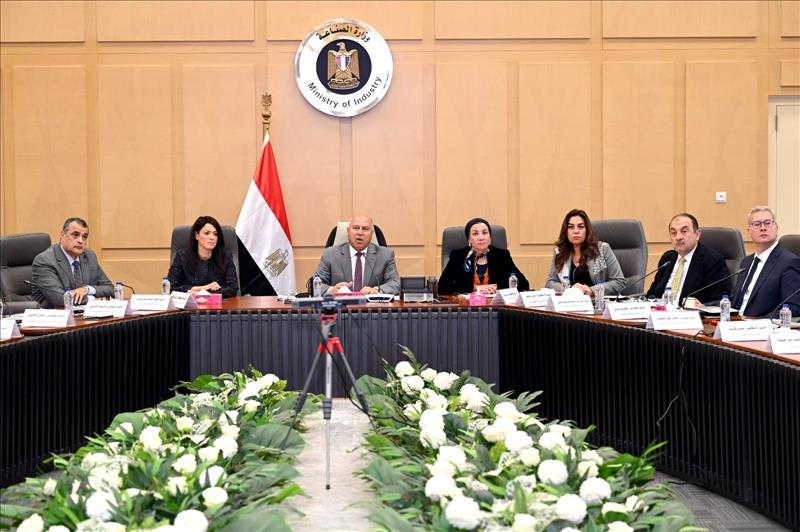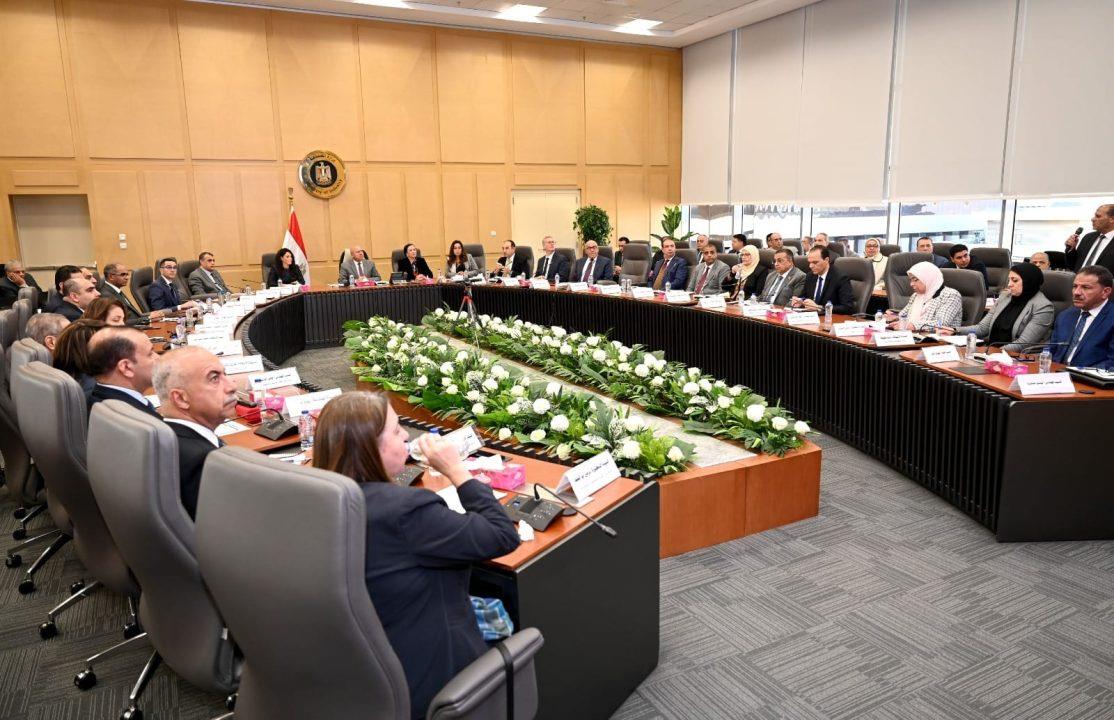
CBE Plans To Establish Fund To Support Producers In Various Sectors: Al-Wazir
Al-Wazir highlighted ongoing coordination between the Ministry of Industry and the CBE to identify priority production sectors deserving financial backing for procuring machinery and equipment. He also noted collaboration with the Ministry of Finance and the CBE to allocate funds under the 15% industrial financing initiative. This initiative prioritizes industrial sectors based on recommendations from industry chambers, including pharmaceuticals, engineering, building materials, textiles, food, and chemicals, with total loan requests amounting to EGP 7.776bn.
During the 12th meeting of the ministerial group for industrial development, chaired by Al-Wazir, key officials discussed these topics. The meeting was attended by Mohamed Salah El-Din, Minister of Military Production; Mohamed Shimi, Minister of Public Enterprises; Yasmine Fouad, Minister of Environment; Rania Al-Mashat, Minister of Planning, Economic Development, and International Cooperation; Hassan El-Khatib, Minister of Investment and Foreign Trade; Manal Awad, Minister of Local Development; Karim Badawi, Minister of Petroleum and Mineral Resources; Mokhtar Abdel Latif, Chairperson of the Arab Organization for Industrialization; Nahed Youssef, Chairman of the General Authority for Industrial Development; Walid Gamal El-Din, Chairperson of the General Authority of the Suez Canal Economic Zone, along with representatives from ministries, senior officials from the Ministry of Industry, and automotive manufacturers operating in Egypt.
The group reviewed requests from several companies, including Gresh for automotive glass manufacturing, Cotton Floor for textiles and ready-made garments, and Pyramids for automotive tires. These companies sought protection from harmful trade practices by foreign competitors flooding the market with rival products. The group also examined reducing customs duties on production inputs relative to finished products. It was agreed that these requests would be assessed by the Customs Distortions Committee to devise solutions. The committee also explored the need for new glass factories to close the domestic production gap, with surplus output earmarked for export.
Discussions extended to government initiatives to manufacture automotive tires, batteries, and components for renewable energy production. Al-Wazir reaffirmed the government's commitment to supporting these industries to satisfy local market demand and bolster exports. He emphasized the need for automotive factories in Egypt to locally manufacture components such as tires, glass, and batteries, advancing localization and sustainability in the automotive sector. He urged ministries and entities within the ministerial group to attract investors for high-quality automotive component manufacturing, aiming to diversify local suppliers and reduce reliance on imports.
The Arab Organization for Industrialization presented plans to develop a city for automotive tire manufacturing in partnership with a leading Chinese tire producer. Located in the Ain Sokhna free zone, the project includes three tire factories, a manufacturing equipment plant, service and maintenance centers, a steel wire plant for tires, a white carbon factory, a rubber and tire technology research center, and a training center for workers. The first phase will commence with a tire factory within a year.
The Ministry of Public Enterprises outlined a plan to upgrade the Nasr Tire factory in Alexandria in collaboration with European companies, targeting production within two years. Additional projects include establishing a car tire factory in Amreya with a Chinese partner, manufacturing solar panel glass with a UAE firm, and producing batteries for minibuses by Nasr Automotive. Al-Wazir directed the Maritime and Land Transport Holding Company to coordinate with Nasr Automotive to supply luxury buses for passengers at new city high-speed rail stations.
Mechanisms to encourage green hydrogen production and its derivatives were also discussed, with a focus on overcoming challenges such as the availability of industrial land for renewable energy projects and the provision of electricity through the national grid. Al-Wazir emphasized the activation of the Energy Planning Unit under the Supreme Council of Energy to support renewable energy industries in Egypt.
Additionally, the Ministry of Public Enterprises presented its plan to modernize the aluminum factory in Nag Hammadi as part of a national strategy to boost investments in aluminum manufacturing. This four-year project is set to begin in early 2025 to meet domestic demand and reduce import reliance, given aluminum's critical role in numerous industries.
The Suez Canal Economic Zone highlighted its efforts in advancing green hydrogen production during the meeting.
Al-Wazir instructed the unified factory inspection committee to prepare reports on facilities operating in violation of their licenses, with recommendations for closure to be submitted to the Prime Minister. This aims to curb non-compliant manufacturing and prevent market disruption. He also urged inspection entities to collaborate under the committee's oversight, suggesting the inclusion of the Food Supply Police in the inspection process.
The meeting concluded with a pledge to expedite the settlement of exporters' dues from the Export Support Fund. Coordination between the Ministries of Investment, Foreign Trade, and Finance will facilitate this process by activating a settlement system for investors' claims with government entities such as petroleum, taxes, and electricity. This reflects Egypt's commitment to fostering investment through comprehensive incentives.

Legal Disclaimer:
MENAFN provides the
information “as is” without warranty of any kind. We do not accept
any responsibility or liability for the accuracy, content, images,
videos, licenses, completeness, legality, or reliability of the information
contained in this article. If you have any complaints or copyright
issues related to this article, kindly contact the provider above.


















Comments
No comment